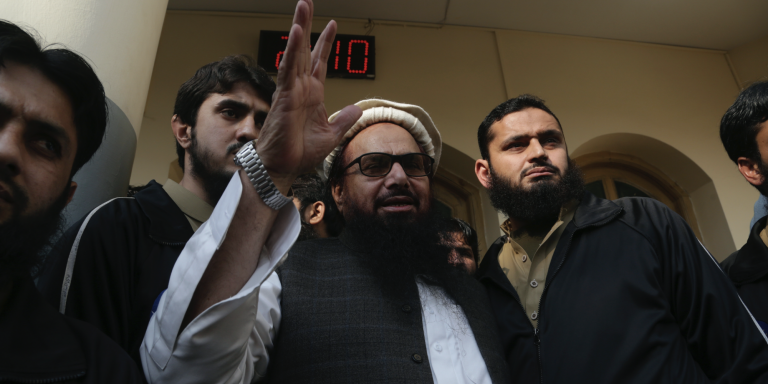INTELBRIEF
July 23, 2019
IntelBrief: Mastermind of 2008 Mumbai Terror Attacks Arrested

- Pakistani authorities have arrested Hafiz Saeed, founder of the terrorist group LeT and mastermind of the 2008 Mumbai attacks.
- Pakistan outlawed LeT in 2002, although the group continues to operate with the assistance of elements of the Pakistani security services.
- New Prime Minister Imran Khan is attempting to refashion Pakistan’s image from a state sponsor of terrorism to a responsible member of the international community.
- If Pakistan can make progress on terrorism financing, it may be able to avoid harsh international sanctions.
.
Pakistani authorities recently arrested Hafiz Saeed, founder of the terrorist group Lashkar-e-Taiba (LeT), or 'Army of the Pure,' and mastermind of the 2008 Mumbai attacks that killed 166 people. LeT remains one of the most operationally capable terrorist groups in South Asia, serving as a crucial facilitator linking together various strands of jihadist militancy in the region. Saeed was apprehended in Punjab Province as he attempted to travel between Lahore and Gujranwala. In late 2008, the same year as the attacks, Saeed was listed by the United Nations as an international terrorist, which alleged he had maintained connections to LeT and al-Qaeda in the Indian Subcontinent (AQIS). He was accused of 'participating in the financing, planning, facilitating, preparing, or perpetrating of acts' of terrorism.
Saeed was wanted for his role in planning the 2008 terrorist attack in Mumbai, a complex assault that involved numerous operatives staging a sophisticated operation in India’s most populous city, bringing South Asia's nuclear-armed adversaries to the brink of war. Since the attacks, Saeed has operated openly in Pakistan, meeting with journalists, fundraising, and traveling throughout the country to elevate his profile and seek support for a political party linked to LeT. If Islamabad and New Delhi are ever to move toward a less hostile posture, Pakistan recognizes that it must do more to combat the threat of terrorism toward India emanating from within its borders. Achieving this will be difficult, especially as deep divisions exist between Pakistan’s civilian government and its military and intelligence counterparts, which have long operated a parallel government of sorts. That parallel system has included the sponsorship of jihadist militant groups in Afghanistan, Kashmir, and elsewhere throughout the region. Specifically, for decades, Pakistan’s security services, especially the Inter-Services Intelligence (ISI), have cultivated links to terrorist organizations.
The United States placed a $10 million bounty on Saeed and has repeatedly pressured the Pakistanis to bring him to justice. His capture occurred just days before Pakistani Prime Minister Imran Khan’s recent visit to Washington. Khan is attempting to refashion Pakistan’s image from a state sponsor of terrorism to a responsible member of the international community, promising India and the U.S. that under his government there will be a crackdown on groups that engage in political violence or seek to use Pakistan as a sanctuary from which they can launch terrorist attacks. Islamabad is also seeking to play a critical role in the ongoing negotiations between the Afghan Taliban and the U.S. taking place in Doha, Qatar.
In addition to arresting Saeed, the Pakistanis have also moved to freeze assets and seize the property of militants associated with LeT and other terrorist groups. The charges levied against Saeed were related to the financing of terrorism, specifically to charities used to finance jihadist terrorism and militancy. If Pakistan can show that it is making progress on cracking down on the funding of terrorism, it may be able to avoid some of the harshest international sanctions that would limit its access to the global financial system. Pakistan remains on the 'grey list' of the Financial Action Task Force (FATF), which identifies and takes punitive actions against countries that are not doing enough to combat the financing of terrorism in their respective countries. LeT was officially banned by Islamabad in 2002, although the group continues to receive the assistance of elements of the Pakistani intelligence and security services. In the zero-sum lens of India-Pakistan relations, the ISI sees LeT as a useful proxy to deploy against New Delhi in any future conflict over Kashmir.
.
For tailored research and analysis, please contact: info@thesoufancenter.org
[video width="960" height="540" mp4="https://thesoufancenter.org/wp-content/uploads/2019/07/IB-0723.mp4" poster="https://thesoufancenter.org/wp-content/uploads/2019/07/Screen-Shot-2019-07-22-at-23.43.36-1-e1563828397551.png"][/video]